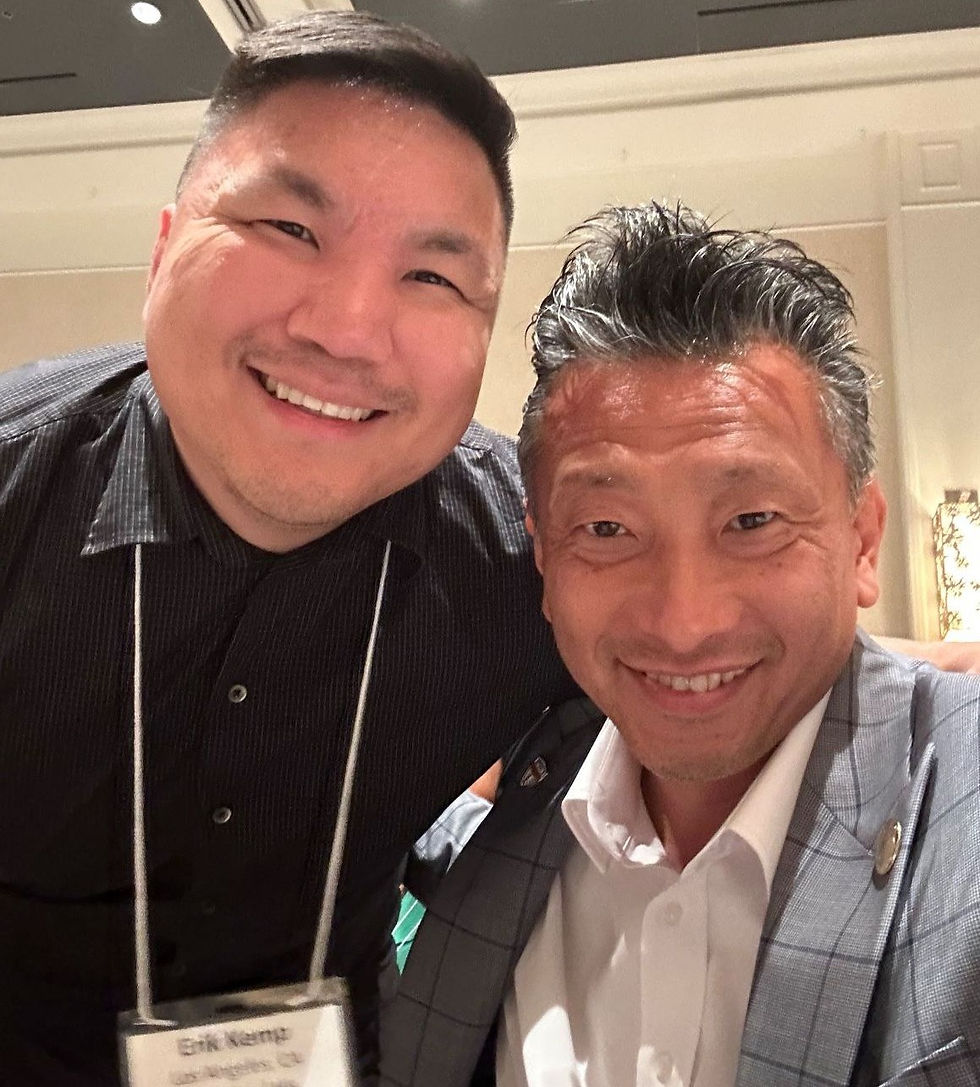Will I Ever Be Enough?
- KAAN
- May 3, 2021
- 4 min read
by Rebecca Cheek

In-between.
Stuck.
Loss.
Assimilated.
Feelings of being an “Other”.
Not fitting-in.
Isolated.
Missing out.
Lonely.
Ugly.
A band-aid.
Second choice.
White-washed.
An Impostor.
These are a few words or phrases that I would use to describe my lived experiences as a Korean American adoptee raised in rural Alabama.
On paper, I have lived a quintessential, Southern life: I was a high school cheerleader, made good grades in high school and college, a sorority girl who eventually became a career woman in a male-dominated field, while juggling marriage with kids. However, growing-up I always knew I was different, as the only Asian, adopted kid with white parents in my school and community.
I was made fun of and called many of the common Asian ethnic slurs from kindergarten through my senior year of high school. Back in the 90s, where I lived, there were no local cultural camps or support groups for adoptees, and there was very little positive visual representation in the media or popular culture (besides Olympic athletes Kristi Yamaguchi, Michelle Kwan, and Amy Chow). Like many transracial adoptees, I was raised “colorblind.” This way of viewing the world, and my place in it, did not do me any favors with helping to shape my identity. It should not be surprising that I have felt removed from my “Koreanness'' for a majority of my life and maybe always will.
As we celebrate AAPI Heritage Month and continue the process of digesting and healing from the previous President’s administration and March 16th’s mass shooting in Atlanta, I think about where I am at in my present moment of my adoption journey and I can’t help but wonder about my place in the Asian American community. Internally and culturally, I am white due to my adoptive parents. But externally, I am Korean.
Having white parents and a white life partner has not saved me from cruelty, insecurity, or fear. When people see me in public, they don’t stop to ask me if I was raised by white parents or if I have a white life partner. I feel stuck in limbo because South Korea did not know what to do with me and neither does the United States. I know I am not Korean “enough” by South Korea’s standards. But I also know I am not white “enough” by the United States’ standards either. I often wonder, if I will ever be enough, period?
My counselor says that adoption is born from loss. And through my adoption, there are days when I feel like I have lost more than I have gained. There are the obvious losses, like my familial lineage, not knowing whose laugh I share, which parent’s smile I have, if I have siblings or not, language, history, sights, and smells. Then there are the not so obvious losses, like what it would be like to be raised in a collectivist culture vs. individualistic culture, or the nuances of Korean body language and mannerisms. These losses make me feel disconnected from Asian culture and less inclined to feel included in the AAPI community at large.
Even though COVID-19 has been a kick in the teeth, one positive part of the pandemic has been my ability to find (virtual) connections I would not otherwise have had the opportunity to find. One such connection is KAAN. This organization has been a bright light for me. The KAAN Community Conversations have provided a safe space to speak and to listen through encouragement and camaraderie of shared or similarly lived experiences, bypassing the bullshit that comes with trying to find community as an adoptee. These Community Conversations have allowed for built-in trust with other adoptees and mutual care for one another. Simply seeing other Asian faces on my computer screen makes my heart full, and my spirit less weary.
For those who have had a completely different adoption experience than myself, where it has been positive; and you’ve always felt included, I rejoice with you! I am happy that you have been able to find where you fit in our complex history of being transracially adopted. As I navigate finding my own place in the AAPI community, KAAN and other organizations like it have slowly started to bring me to a place of understanding, a place of hope, and a place of peace. Through KAAN, I have found my kindred spirits, and in the process, I’ve found parts of myself that make me whole. As I gain more life experience feeling supported and validated in my Korean adoptee journey, maybe I will find that I am enough, even if it is just for myself.

Rebecca Cheek (she/her/hers) is a transracial Korean American adoptee currently living in South Carolina. She has a Bachelor of Science Degree in Chemistry from the University of Alabama in Huntsville with a background in manufacturing of drug delivery systems and quality assurance management in chemical manufacturing. However, she is currently taking a pause in her professional career to raise her children and trying to figure out what she wants to do when she (really) grows up. In the meantime, she’s active volunteering in her community through multiple organizations. She’s a peace seeker, who strives to live her life yogically. She enjoys knitting, hand-lettering, reading, and spending time with her family and friends.




Comments